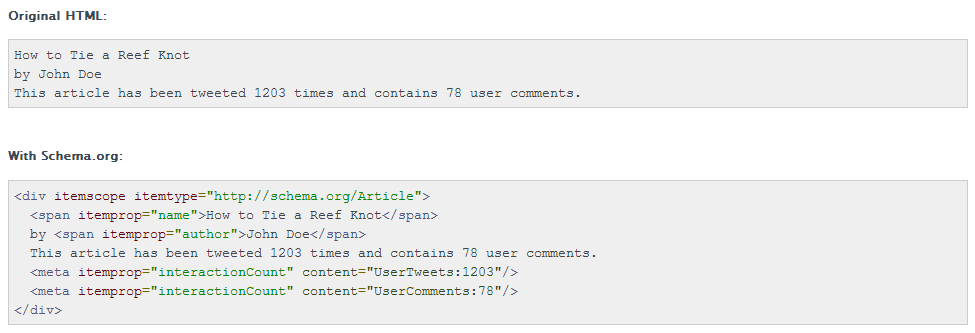A recent webmaster forum thread has put the spotlight on a question that’s been asked many times in the past already: Do Facebook likes – and social media interaction in general – contribute to SEO? If you will remember, I previously wrote a blog about Facebook likes specifically in the past, and I also wrote about Google+ shares and +1s and their effect on SEO. The difference with this forum thread is the mention of a Schema.org tag that you may not be familiar with: the UserInteraction tags. I want to focus on this element and discuss what it could possibly mean for your marketing campaign.
What are UserInteraction Tags?
UserInteraction tags are mark-ups that make it easier for search engines to read social related features. It helps search engines get the information that otherwise would not be directly accessible to them, as is the case with Facebook likes. See the complete list of mark-ups below:
- UserBlocks
- UserCheckins
- UserComments
- UserDownloads
- UserLikes
- UserPageVisits
- UserPlusOnes
- UserTweets
schema.org gives this example of how to use UserInteraction markups in your content.
Does It Contribute to Your SEO?
Google has not yet given an answer regarding the specific value of this markup to rankings, but they do encourage the use of schema.org tags to structure data more effectively across the Internet. You can read more about it in their schema.org FAQ section on the Google Webmasters Support page.
What it does do, however, is to inform search engines of the extent of your social activity and popularity. The contribution of these tags to your online marketing campaign is indirect: Google gets the information from the markups and determines your social popularity and your authority as an information source based on the likes, shares, blocks, and other social activity you get. It can help build your online authority, determine the activity around your published content, and establish you as a trusted author, which in turn boosts your rankings on the SERPs.
What This Means for You
One of the challenges presented by this markup is updating the information automatically. You will need to have an advanced social tracking system in place, or use the social network’s API in order to update this information and implement the markups properly.
The good news for our partners is we implement schema.org tags in your websites and your content, and we have the capability to integrate advanced tracking tools and set up automatic updating using your social networks’ API for this kind of markup. Talk to your account manager today to discuss how you can modify your SEO strategy to include this type of markup.
If you’re not yet our partner, sign up today to gain access to your free white label dashboard and to our complete suite of SEO solutions. Keep checking back for more updates!


